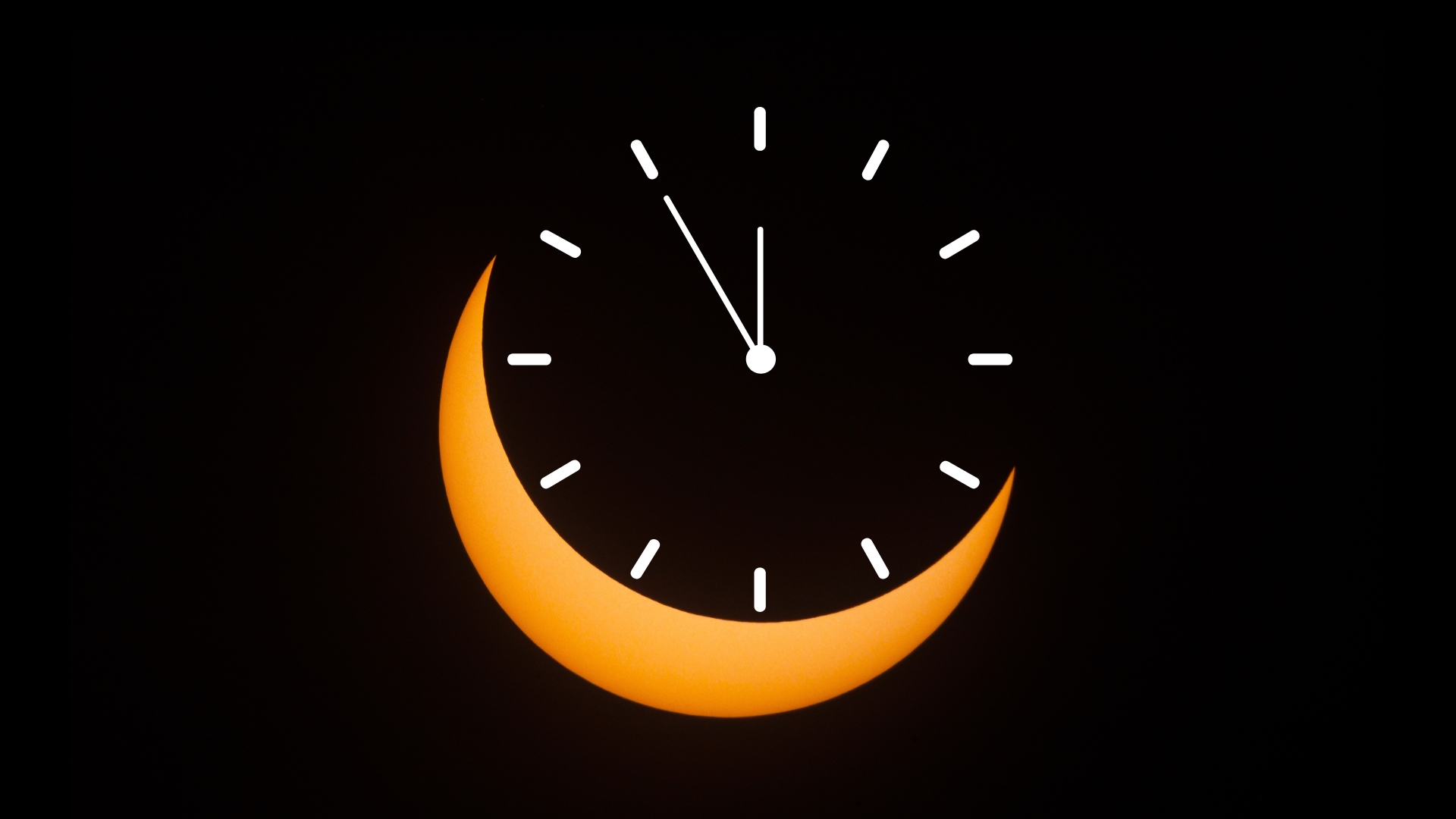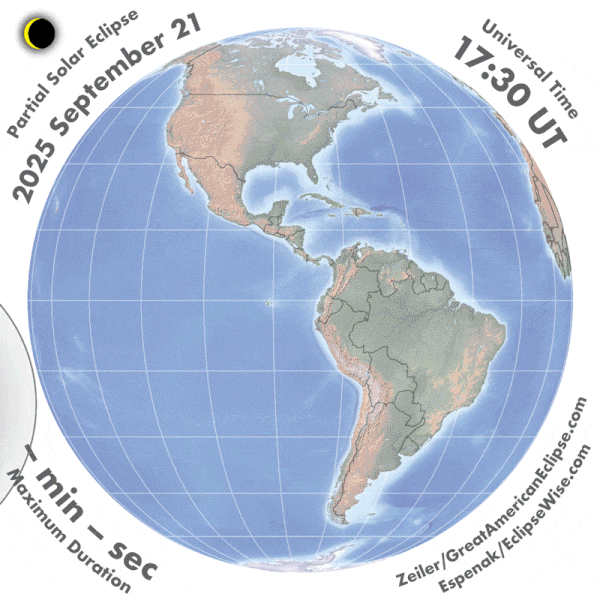What time is the partial solar eclipse Sept. 21?
Earth will see a deep partial solar eclipse on Sept. 21 — here's who can watch and when.

Editor's note: The September 2025 partial solar eclipse put on a magnificent show as the moon swept over the face of our sun, darkening the sky over a swathe of the Pacific Ocean. Check out our wrap article to see the first images from the spectacular orbital ballet, as seen from the city of Dunedin, New Zealand
The moon will appear to take a "bite" out of the sun during a deep partial solar eclipse on Sept. 21.
Globally, September's partial solar eclipse will begin at 1:29 p.m. EDT (1729 GMT), with the maximum eclipse phase — when the moon covers the largest portion of the sun — occurring at 3:41 p.m. EDT (1941 GMT). However, exact timings vary by location. A detailed breakdown of eclipse times for different countries can be found in the table below. For a full breakdown, see Time and Date.
Only 16.6 million people, 0.2% of the world's population, live in areas where at least part of the solar eclipse will be visible, according to Time and Date. If you're not one of the lucky few in the path of the partial solar eclipse, you can watch all the action unfold live here on Space.com. You can also keep up with the latest eclipse news and updates with our partial solar eclipse live blog
Country | Start of eclipse (local time) | End of eclipse (local time) |
|---|---|---|
Antarctica | 4:49 a.m. | 6:53 p.m. |
Australia | 6:13 a.m. | 7:36 a.m. |
Fiji | 5:42 a.m. | 7:27 a.m. |
New Zealand | 5:41 a.m. | 8:36 a.m. |
Samoa | 6:29 a.m. | 8:09 a.m. |
For each country, the 'start' time marks when the eclipse first becomes visible at the earliest location within that country, while the 'end' time marks when it finishes at the last location still able to see it."
How to watch the eclipse safely
Never use regular sunglasses to observe the sun. The only safe way to look directly at the sun is through specifically designed solar filters, using solar eclipse glasses for direct viewing and solar filters for telescopes and binoculars.
We have rounded up some of the best solar viewing kit deals available for you to make the most of your next sun viewing experience. Check out our how to view the sun safely guide for more advice on what to look out for during your next solar viewing venture.
Breaking space news, the latest updates on rocket launches, skywatching events and more!
Editor's Note: If you snap a photo of the solar eclipse and would like to share it with Space.com's readers, send your photo(s), comments, and your name and location to spacephotos@space.com.

Daisy Dobrijevic joined Space.com in February 2022 having previously worked for our sister publication All About Space magazine as a staff writer. Before joining us, Daisy completed an editorial internship with the BBC Sky at Night Magazine and worked at the National Space Centre in Leicester, U.K., where she enjoyed communicating space science to the public. In 2021, Daisy completed a PhD in plant physiology and also holds a Master's in Environmental Science, she is currently based in Nottingham, U.K. Daisy is passionate about all things space, with a penchant for solar activity and space weather. She has a strong interest in astrotourism and loves nothing more than a good northern lights chase!
You must confirm your public display name before commenting
Please logout and then login again, you will then be prompted to enter your display name.

